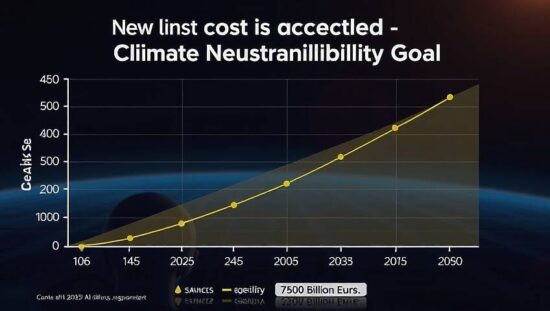A study commissioned by the FDP’s Bundestag faction estimates that a delay in the climate target from 2045 to 2050 would result in significant cost savings, amounting to a high three-digit billion figure.
According to the study by Manuel Frondel, head of the “Environment and Resources” department at the Leibniz Institute for Economic Research at the Ruhr University Bochum, the delay could bring about cost savings of up to 750 billion euros. Frondel argues that the costs of avoiding one ton of CO2 emissions will rise sharply by 2045. “With high specific emissions avoidance costs, especially heavy loads would be borne by the state, society and businesses” he said. This is because the more cost-effective measures would already be in place, resulting in extremely high costs per ton of CO2 avoided.
The study suggests that an early attainment of the climate target by Germany could even have negative effects on the climate: “The emissions certificates freed up by an earlier attainment of the climate neutrality in Germany would be bought up by other companies, leading to increased emissions elsewhere in Europe.”
From the perspective of FDP faction leader Christian Dürr, the delay in the climate target is justified: “Given the dramatic economic situation, the next federal government must end Germany’s special path and adapt to the common European target. Only then can an economic turnaround succeed” he said to the media group Bayern. It’s not about watering down the climate targets, but rather, if Germany’s pioneering role leads to other countries not making sufficient efforts to reduce CO2 emissions, no one will be helped, neither the climate nor the economy.





